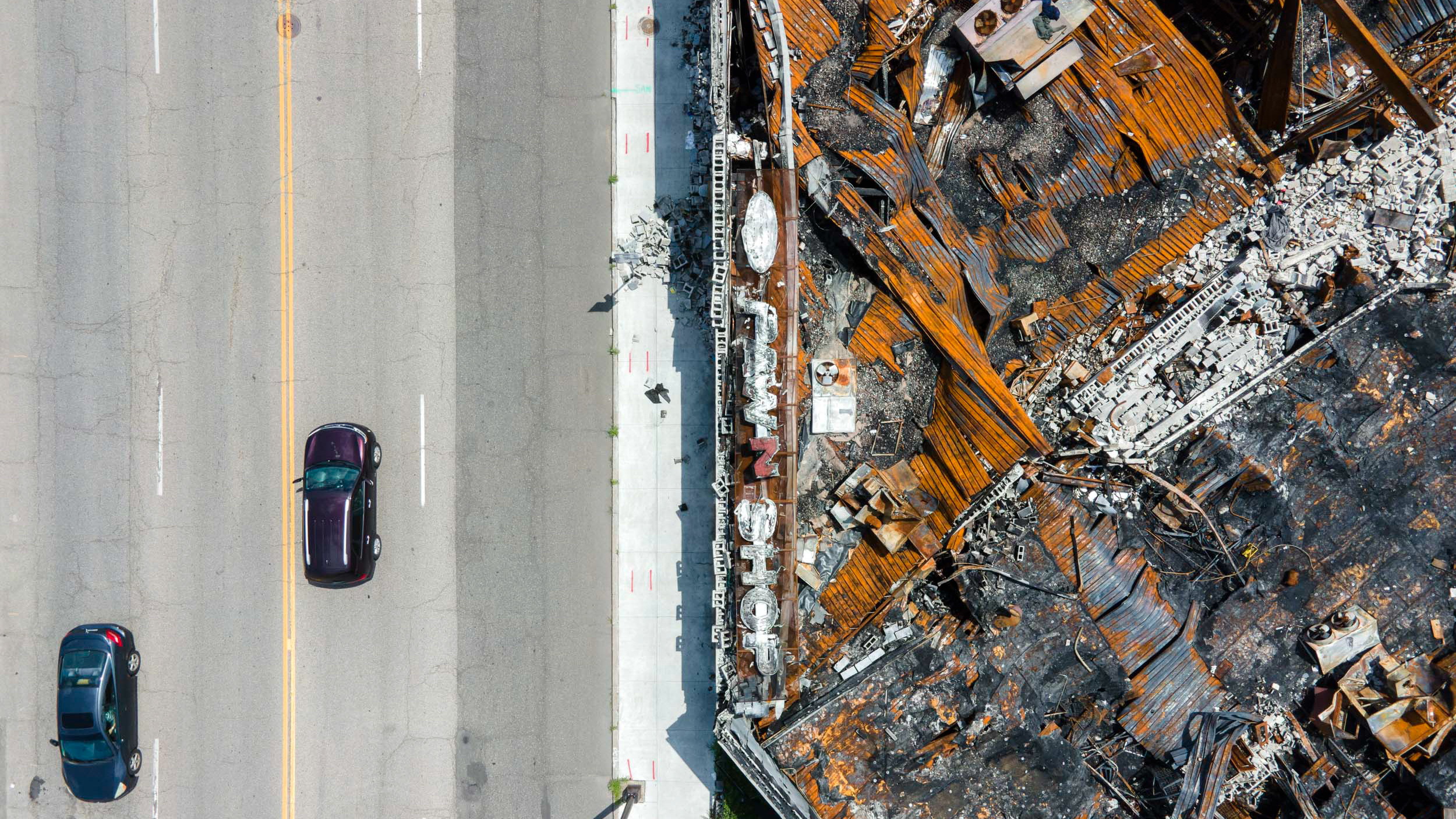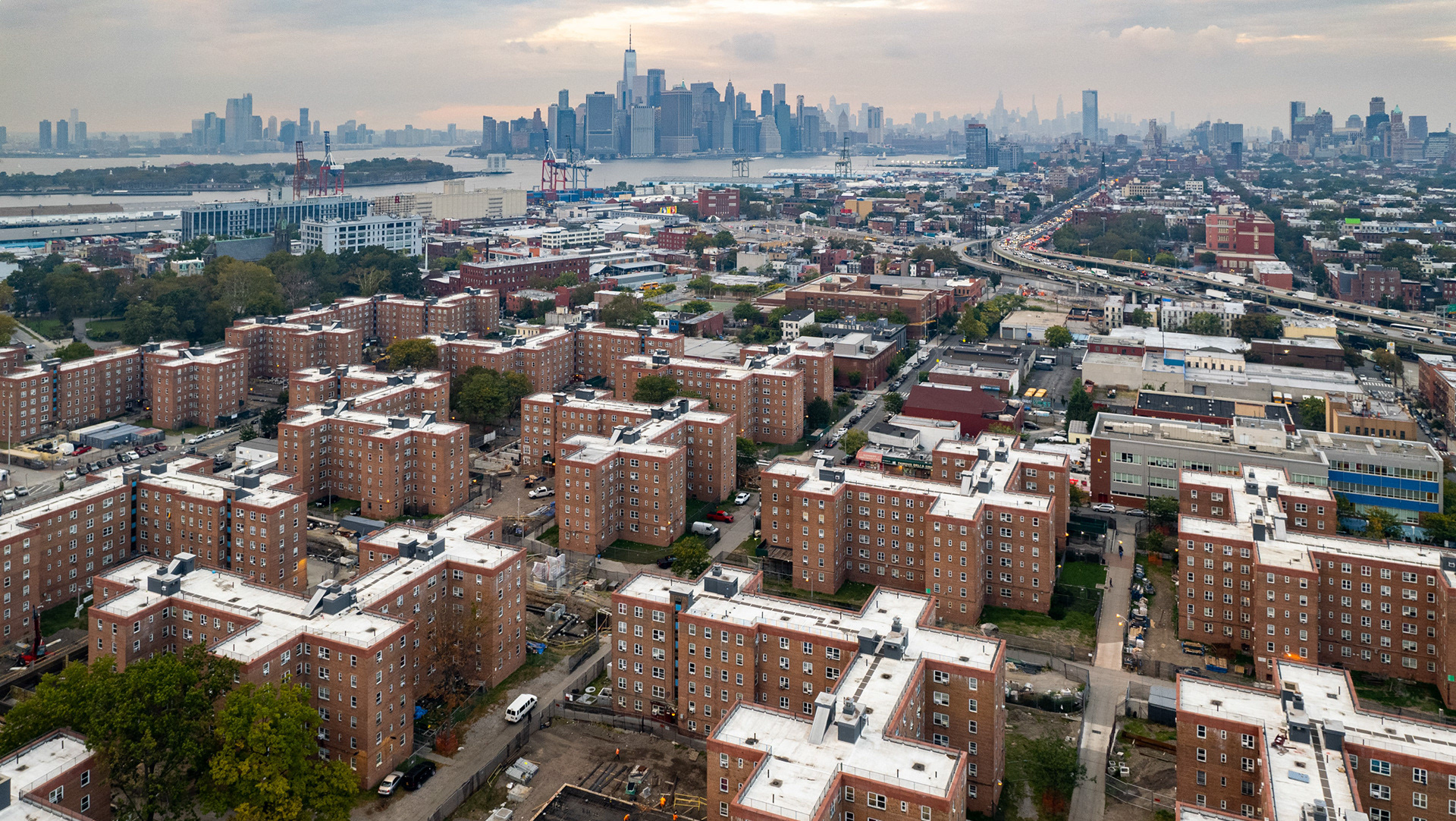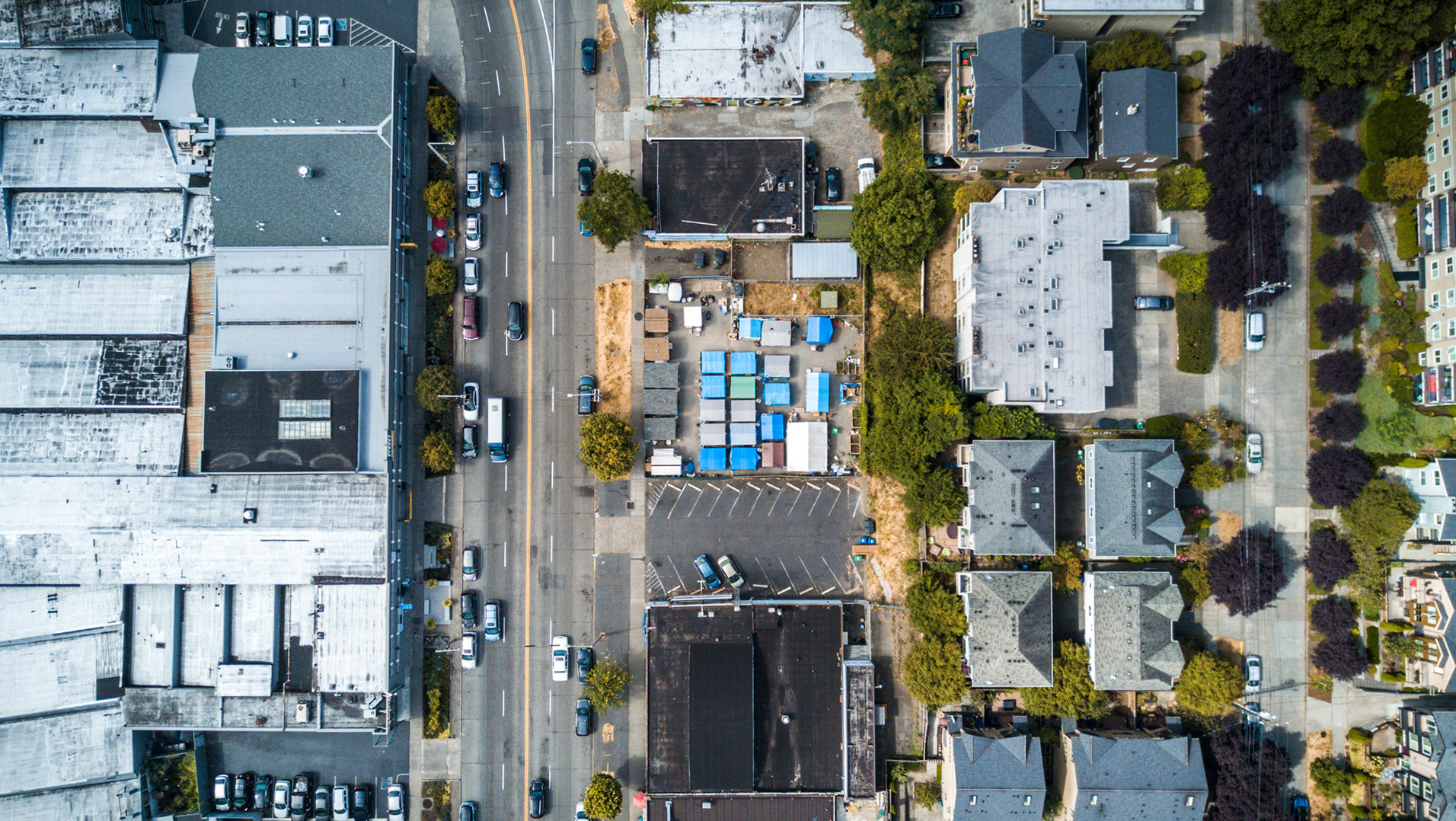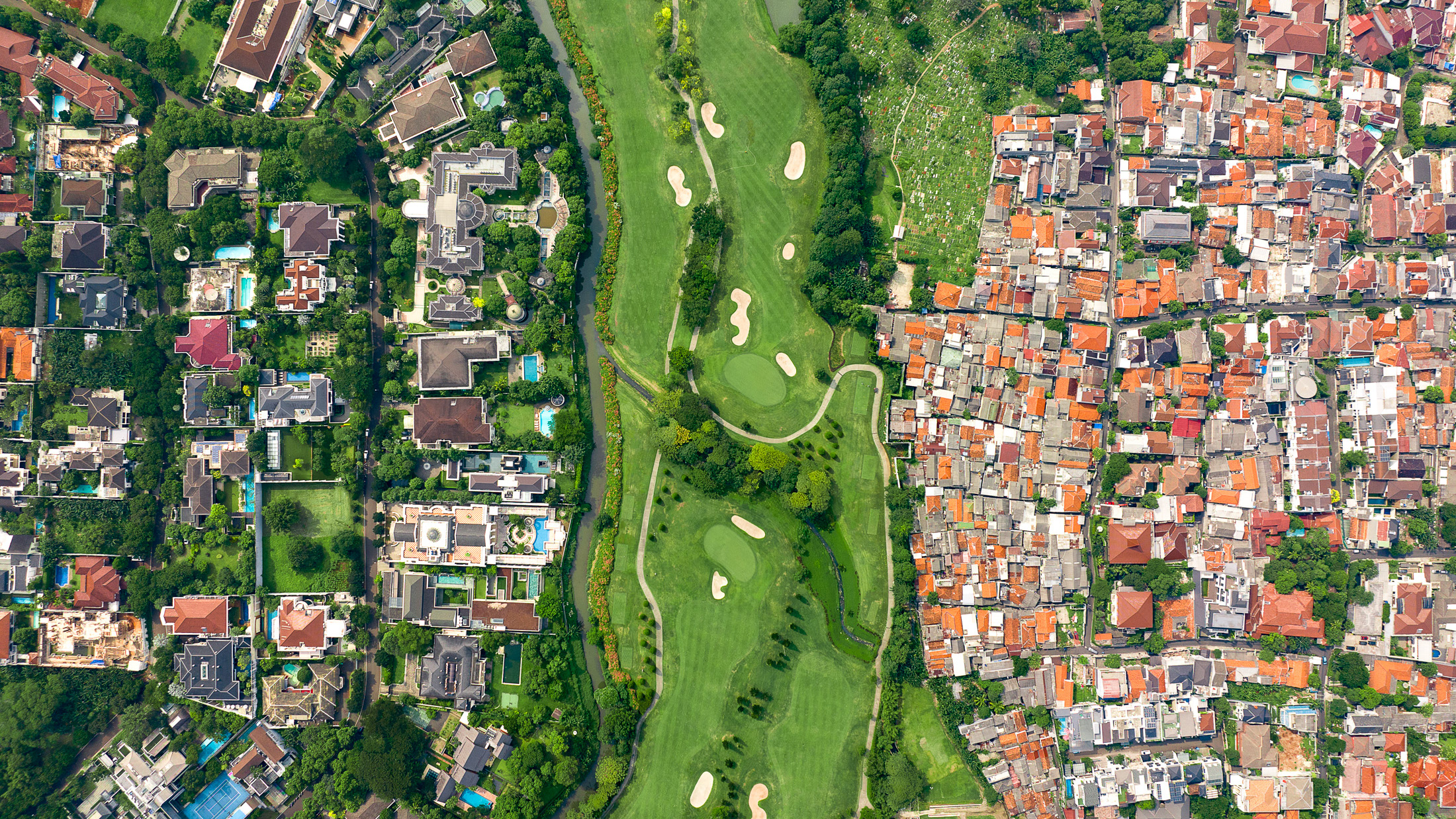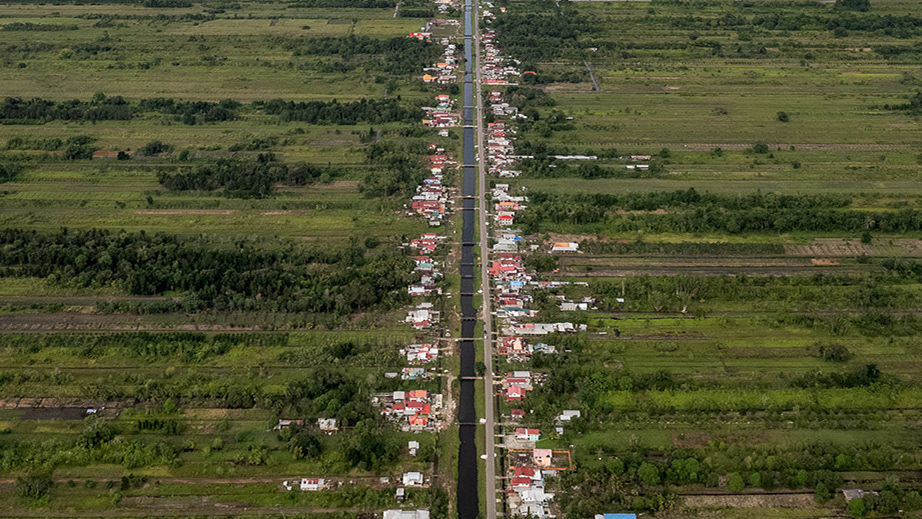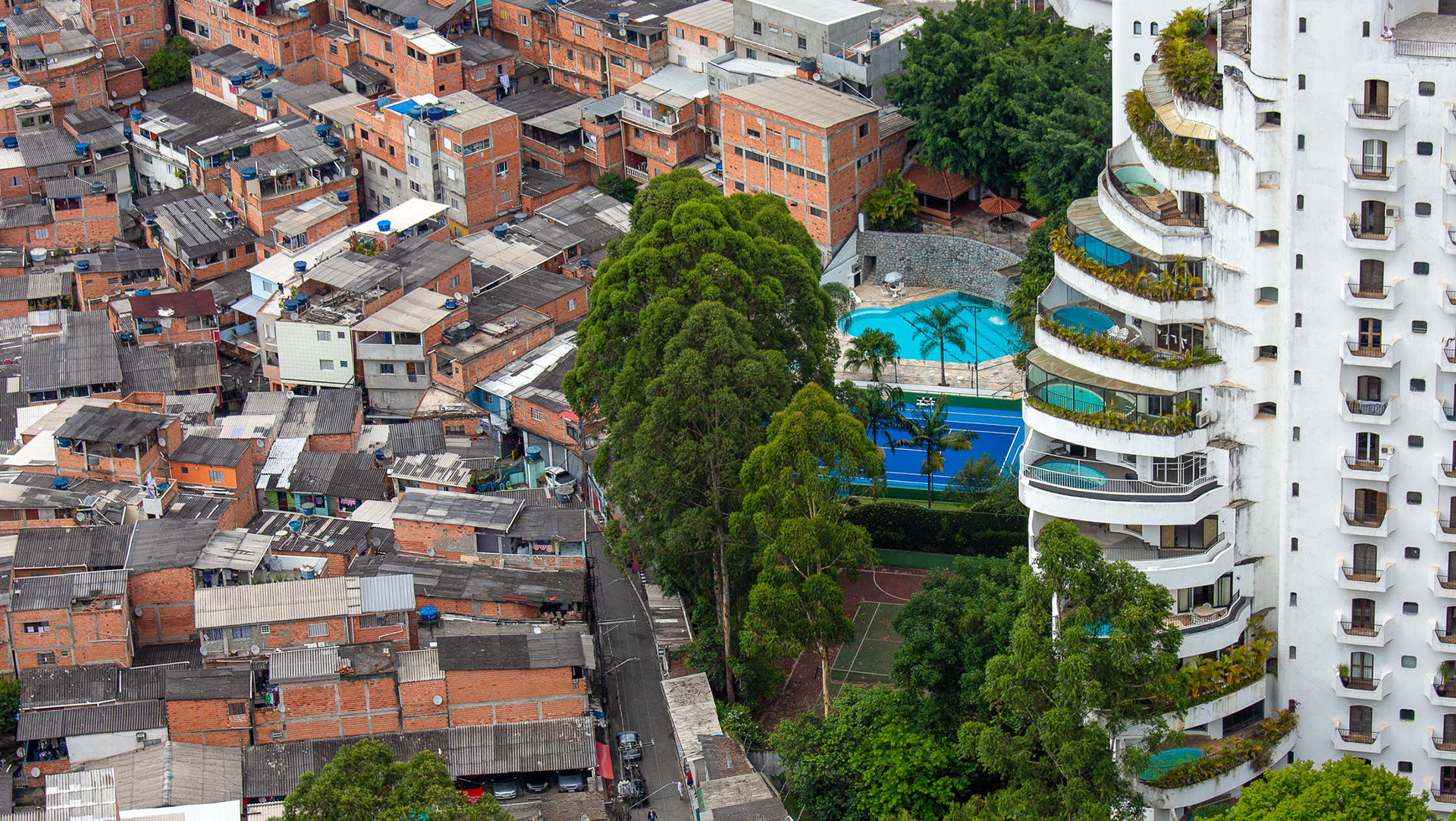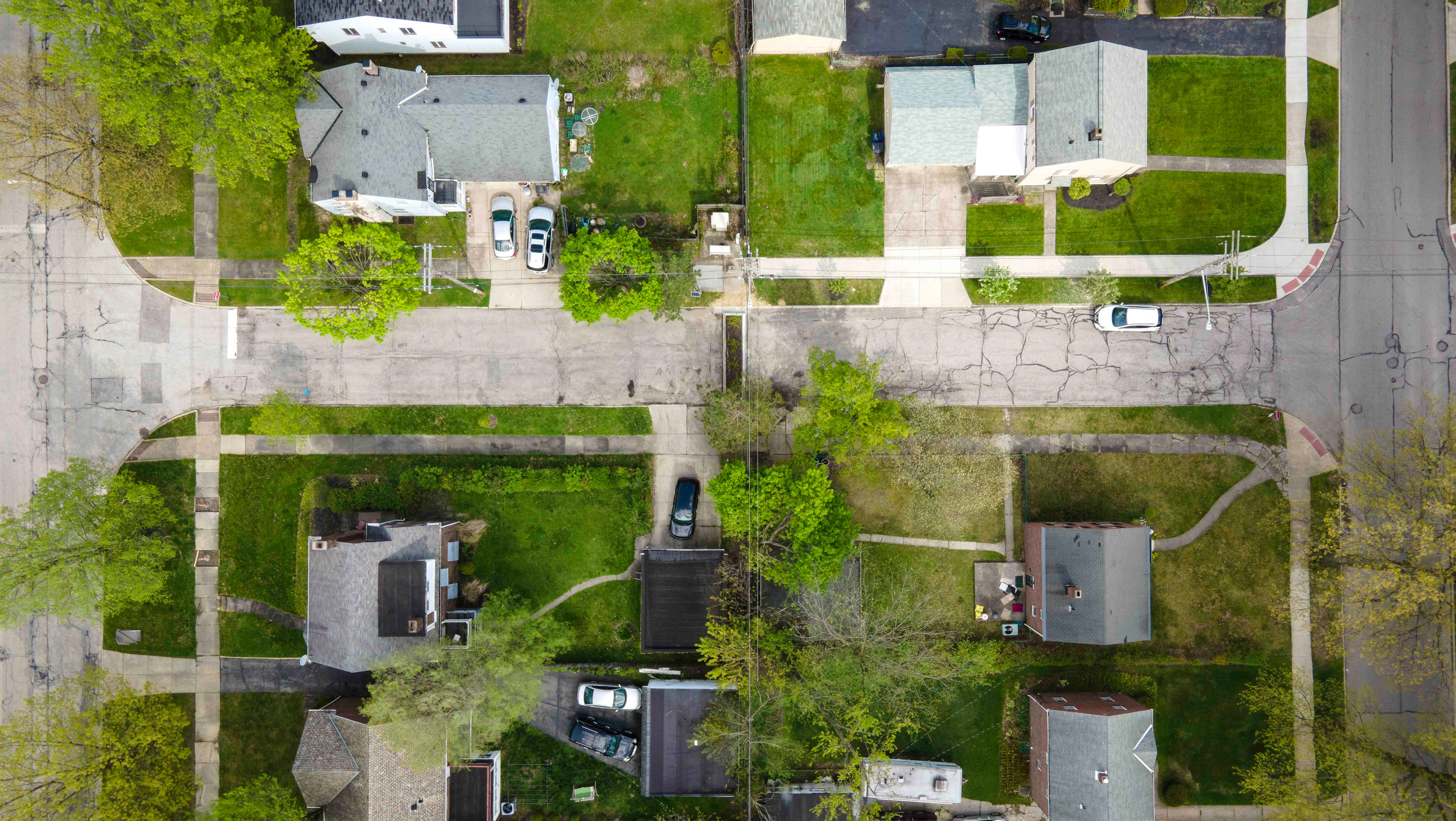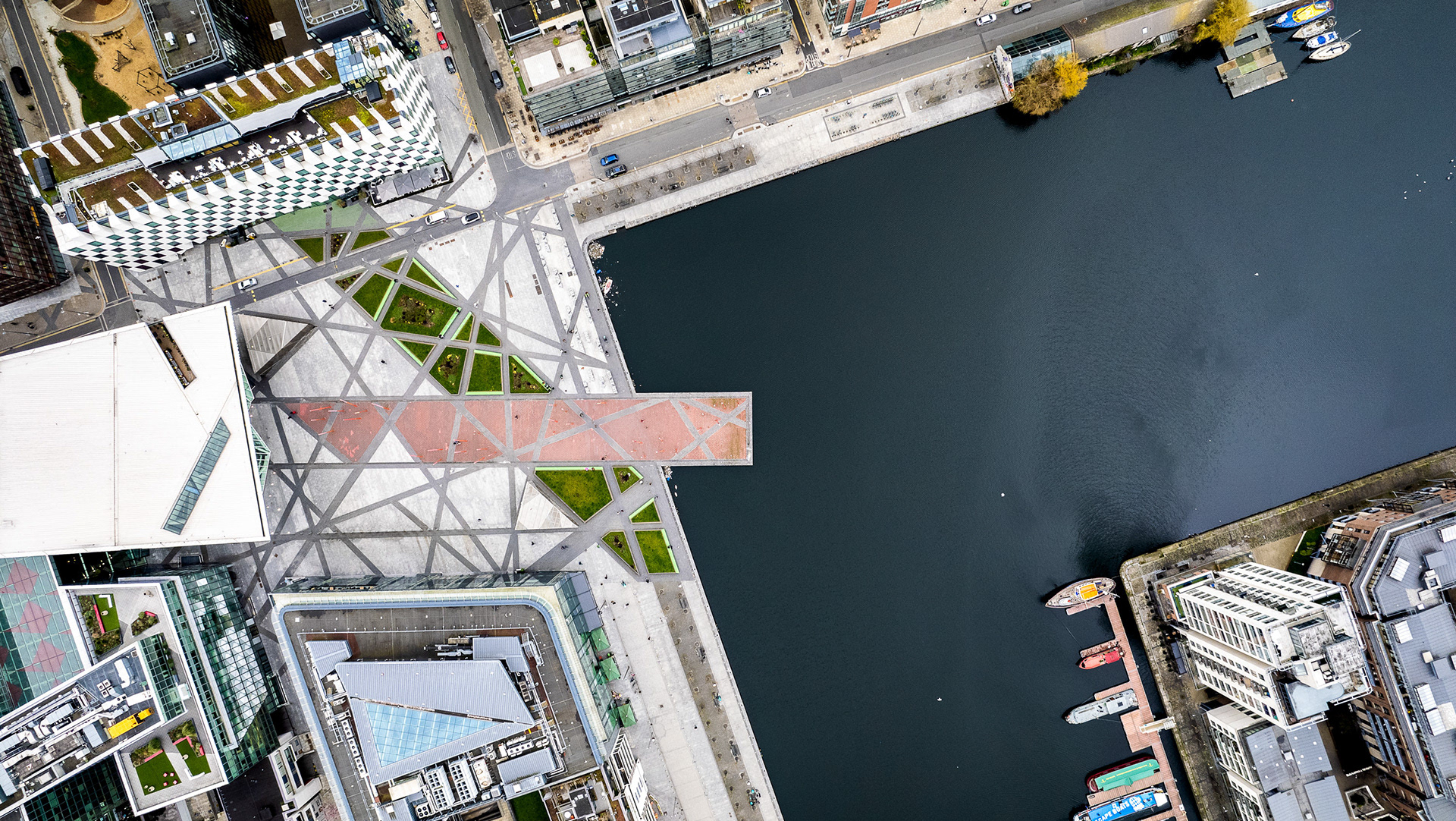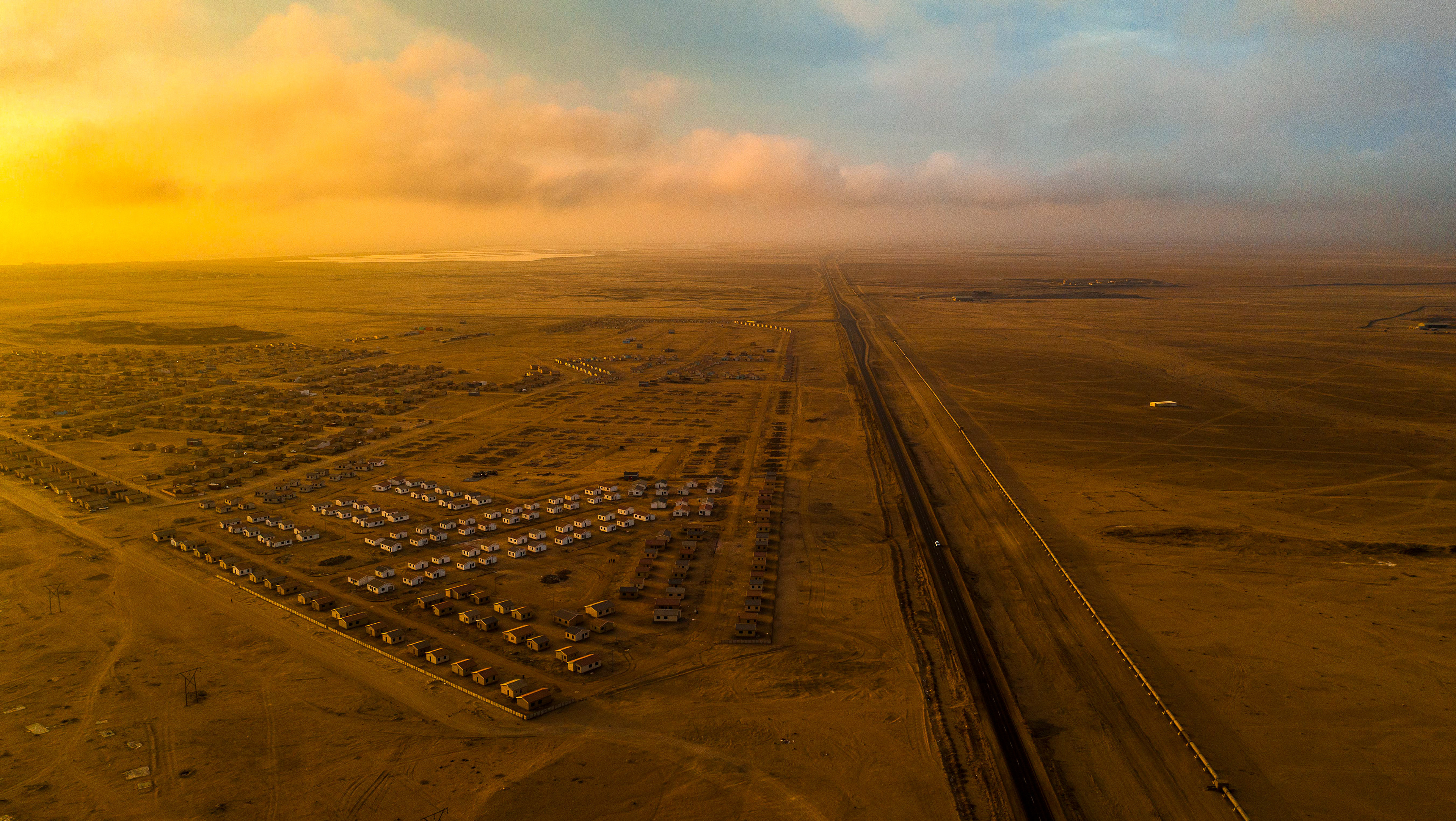Makoko is called “The Venice of Slums” as most of the 300,000 residents or so live on stilted homes in the lagoon which gives the city its name.
Lagos is constructed on a series of islands and wetlands at the mouth of a large lagoon (the word "Lagos" means "lakes" in Portuguese). This sprawling, gigantic mega-city, soon to become one of the largest cities in the world, is also at war with perennial flooding, infrastructure, and climate change challenges. The rapid pace of development, corruption, and a low development index means that any changes are coming too slowly to offset the huge migration to the city currently taking place.
The Abari Cemetery in the middle of Lagos is packed with rows of concrete coffins, many of them decaying and without tops. The decrepit, overcrowded conditions here are in stark contrast to the expensive private cemeteries in other areas of Lagos.
Makoko, "The Venice of Slums". Nigeria is a wealthy country, blessed with abundant resources, but corruption and misallocation of resources mean that 112 million people live in poverty, and investment in health and education are shockingly low. This, as the country is projected to become the world’s third most populous by 2050, with over 420 million people.
Informal settlements pop up anywhere there's a void in the city's formal housing fabric. With soaring housing costs, and a gigantic population (~218 million), many of whom are migrating to cities for work, Lagos is awash with scenes like this.
A market and communal bus station in the Ajegunle neighborhood.
There are no services in Makoko other than what residents provide. All clean water, fuel, food and goods get brought in by residents on canoes. There are also multiple "chiefs" who control different sectors of Makoko. To visit, you must get their blessing.
Opportunity knocks: temporary informal housing appears wherever there is a vacancy in ownership. Sometimes this occurs near construction sites - this one in the heart of Victoria Island, Lagos' most wealthy district.
Informality exists in the liminal zone between the ocean and the houses of Victoria Island.
Wealthy Lagosians flock to beach clubs such as these on Victoria Island, the playground of the city (and the country's) super wealthy. On the day I arrived, the guard asked me for 20,000 naira to enter the beach club on the left, or approximately $46 at the official exchange rate - an astronomical sum to most Nigerians, where the majority make only slightly more than that per month.
Inequality in the Apapa neighborhood.
Makoko is separated from the Lagoon in part by a wetlands, which acts as a filter for some of the worst pollution from the informal area.
Tenants are slowly coming to Eko Atlantic, like these hotels. Mostly though, it's an empty and heavily patrolled white elephant.
Eko Atlantic is one of the biggest development projects in Nigeria. Situated entirely on reclaimed land, the project is intended for an elite business district to emerge on the edge of Lagos' crowded Victoria Island.
There are no roads in Makoko. Everything - including fresh water - must arrive by canoe.
Middle class developments in the upscale Lekki neighborhood abut informal housing.
Downtown Lagos, Victoria Island.

